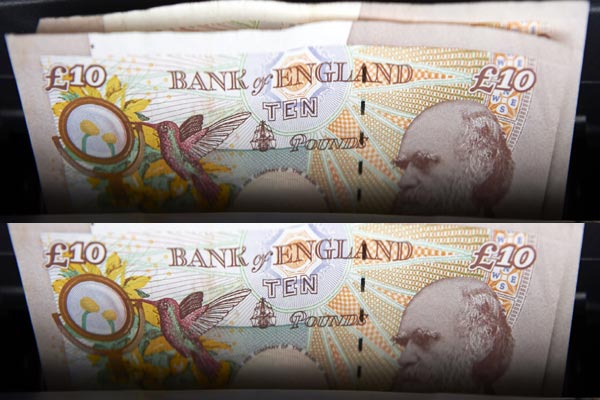Friday, 06 November 2015 16:09
 LONDON: Sterling hit a one-month low against the dollar and also fell against the euro on Friday, as investors cut bets that favoured the pound after the Bank of England (BoE) chief Mark Carney suggested he was in no hurry to raise interest rates.
LONDON: Sterling hit a one-month low against the dollar and also fell against the euro on Friday, as investors cut bets that favoured the pound after the Bank of England (BoE) chief Mark Carney suggested he was in no hurry to raise interest rates.
Sterling had risen to a 10-week high on a trade-weighted basket of currencies this week on expectations that the first UK rate rise since the financial crisis would come in the third quarter of 2016. But after a dovish set of minutes from the BoE last policy meeting and an Inflation Report that said inflation would stay subdued, investors have pushed back those expectations to the last quarter of 2016.
Sterling fell to $ 1.5156, down 0.35 percent on the day, while the euro was up 0.2 percent at 71.69 pence .
There was little reaction to British data on Friday which showed manufacturing output rising in September at the fastest pace in more than a year while the trade deficit narrowed more than expected.
“With a near-term hiking cycle off the table, the rationale for being long sterling has disappeared. We recommend turning short sterling against the dollar,” Deutsche Bank currency strategist, Oliver Harvey, said.
The sell-off in the pound against the dollar could gather pace later in the day if US jobs data, due at 1330 GMT, bolsters expectations of an interest rate hike by the Federal Reserve in December.
In striking contrast to the BoE, Fed chair Janet Yellen said on Wednesday a US rate rise was very much a prospect for December, having earlier dropped its previous warnings on global risks.
Atlanta Fed President Dennis Lockhart, seen by many as a swing voter at the US central bank, was the latest to sound open to a move in December, all of which sent the dollar to a three-month high.
Analysts said the dovish signals from the BoE, which flagged risks to UK growth from external developments, showed it was growing increasingly edgy about the currency’s recent strength.
“The BoE has ticked all boxes suggesting that it does not like sterling strength. We see potential for GBPUSD to trade down to $ 1.48,” Morgan Stanley analysts said in a note.
“Carney linked UK disinflation risks to sterling strength, commodity weakness and Asia’s economy showing additional signs of stress in the third quarter.”


























